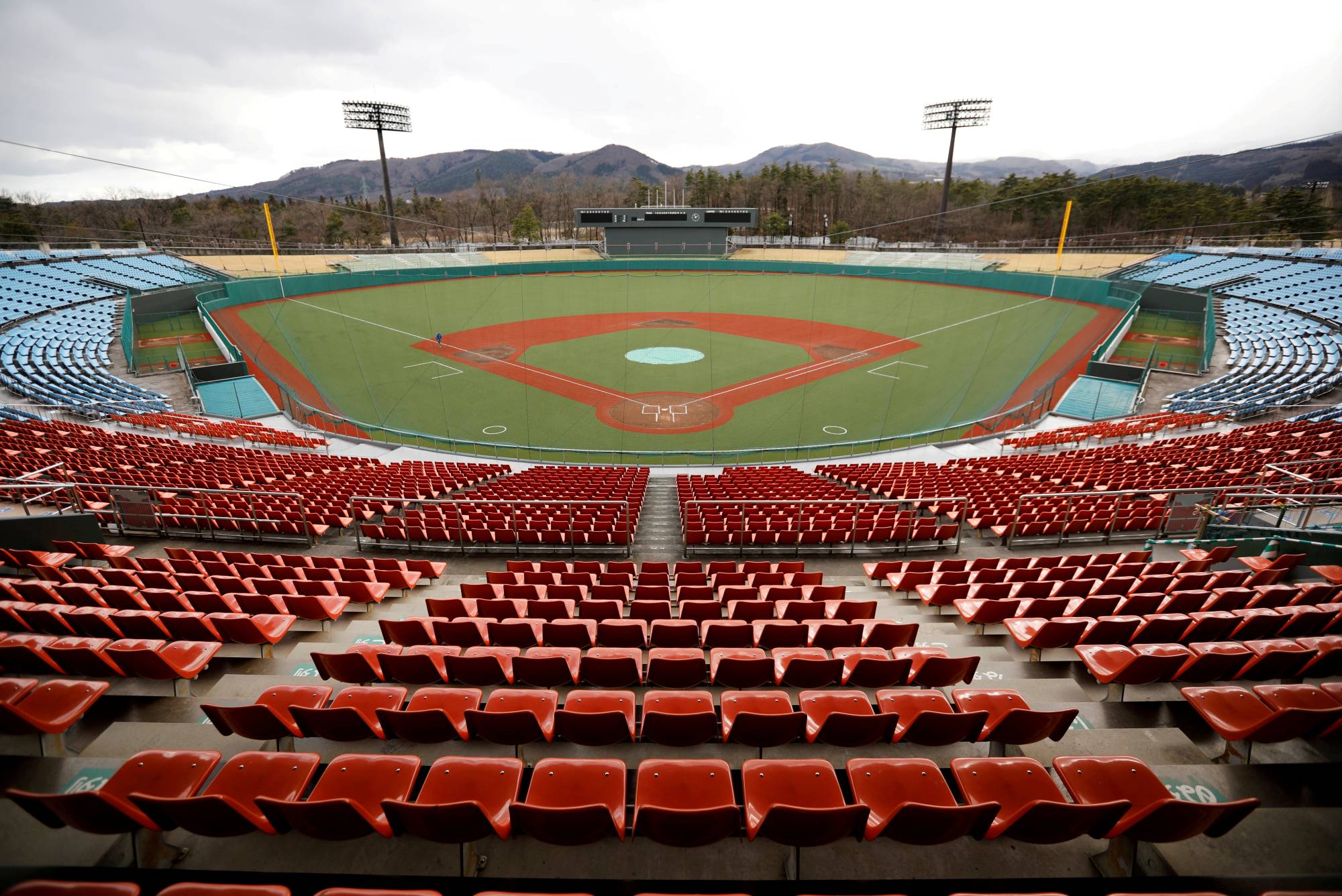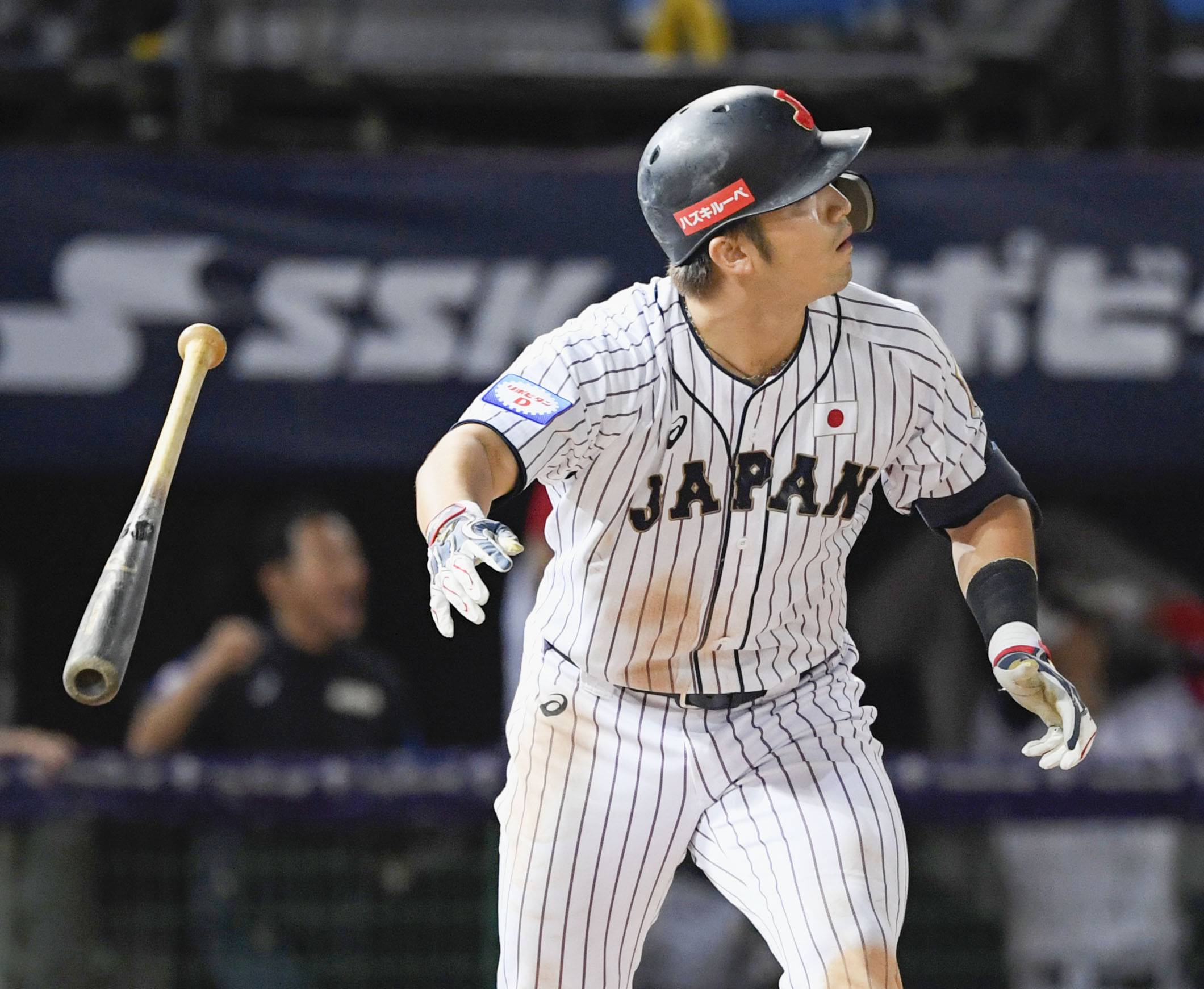While the International Olympic Committee was preparing to reveal the sports being added to the program for the Tokyo Games during the 129th IOC session in Rio de Janeiro in August 2016, a pro softball team in the United States was on a plane preparing for takeoff.
The players followed a livestream of the session as best they could while their plane prepared to depart. When the flight attendants weren’t looking, they surreptitiously sneaked peeks at their phones, which by then were supposed to have been put away. Eventually the news they were waiting for arrived — softball was back in the Olympics and on the program for Tokyo 2020.
“Literally as we were taking off, they announced that we were making it in,” Monica Abbott, a star pitcher for the U.S. national squad who was with the pro team on that flight, told The Japan Times. “The whole team was cheering and hollering and all of it. It was really exciting.”
Softball, along with baseball, was cast out of the Olympics during a secret vote among IOC members in July 2005. When Japan defeated the U.S. in the final at the 2008 Beijing Games, some might have wondered if that would be the last softball gold medal awarded at an Olympics.
That will not be the case, as both sports are back in the Games thanks to Japan’s affinity for them and a new rule that is in effect for the first time.
For Abbott, it’s another chance at a gold medal, but also a chance to show that softball belongs in the Olympics.
“It’s more about what are we doing as a sport to make the IOC realize that softball is valuable to them,” Abbott said.
It has been said softball and baseball were deemed “too American” and not global enough by some in the international community in the run-up to that 2005 vote. The U.S. softball team had been especially dominant, capturing the first three Olympic gold medals after the sport was introduced in 1996. For baseball, a major complaint was the lack of MLB players — which will also be the case this year.

The sports were the first to be voted out of the Olympics since polo in 1936. Lisa Fernandez, who won three gold medals as a pitcher for the U.S. softball team, angrily pinned the blame on then-IOC President Jacques Rogge.
“Rogge has basically conspired against the sports to get them removed,” she said after the decision, according to the Associated Press. “We had done our job as a sport worldwide to show we belong. I feel one person, the president of the IOC, a person from Europe, has taken it upon himself to ruin the lives of millions, actually billions of women.”
The road back to the Olympics began in 2013, when Tokyo was named host for the 2020 Games over Buenos Aires, Istanbul and Madrid.
That turned out to be a fortuitous turn of events for baseball and softball fans in December 2014, when the IOC adopted the Olympic Agenda 2020.
As part of the Olympic Agenda 2020, host cities are allowed to propose sports for temporary inclusion alongside the permanent Olympic events. The move was part of the IOC’s shift to “an event-based rather than a sport-based” approach to the Olympics. The plan was to give host cities the chance to add sports popular in their nations, provide flexibility and make the bidding process less expensive.
It may also have been a sweetener to encourage more bids for future Olympics.
Tokyo 2020 organizers were the first to take advantage, proposing baseball and softball (as a combined bid), karate, skateboarding, sport climbing and surfing.
“Tokyo 2020’s balanced proposal fulfills all of the goals of the Olympic Agenda 2020 recommendation that allowed it,” IOC President Thomas Bach said during the IOC session in 2016.



“Taken together, the five sports are an innovative combination of established and emerging, youth-focused events that are popular in Japan and will add to the legacy of the Tokyo Games.”
Beijing did not propose any sports for the 2022 Winter Games. Paris, the 2024 Games host, proposed skateboarding, sport climbing, surfing, and will introduce breakdancing — leaving baseball and softball on the outside again.
The sports will likely draw good TV ratings during the 2020 Games, but their future is uncertain. Looking beyond Paris, they stand a good chance of returning to the Olympic program in Los Angeles in 2028.
“I am confident that the Tokyo 2020 Games will help display the international growth of baseball and softball that has taken place following their removal after the 2008 Beijing Games, and why they, now more than ever, capture the Olympic ideals and would make great permanent Olympic sports moving forward,” World Baseball Softball Confederation President Riccardo Fraccari told Inside the Games in June.
The rules that initially sparked jubilation in baseball and softball players in 2016, however, delivered a gut punch a few years later when the 2024 proposals were revealed. Since sports proposed by host cities aren’t added permanently, athletes from outside the core Olympic sports are largely left in limbo.
Take softball players, for instance. Their sport was dropped after the 2008 Games, restored for 2020, will be dropped again in 2024 and likely back in 2028. The sport’s fate beyond that may be at the mercy of its popularity in the next host nation — likely Australia.
Baseball and softball officials continue to make their case for permanent spots. Before COVID-19 struck, the Tokyo Games could have showcased a packed Yokohama Stadium and an electric atmosphere as proof of the sports’ appeal.
With fans barred from attending, Abbott is hoping that passion still breaks through somehow.
“Usually in Japan they sell out,” Abbott said. “Before COVID, we were expecting anywhere from 15 to 20 thousand fans in the stands. But with the COVID restrictions, we don’t have that. We need our audience to show up online, we need our audience to show up in viewership and we need our audience to show up in engagement.”
In a time of both misinformation and too much information, quality journalism is more crucial than ever.
By subscribing, you can help us get the story right.
SUBSCRIBE NOW


